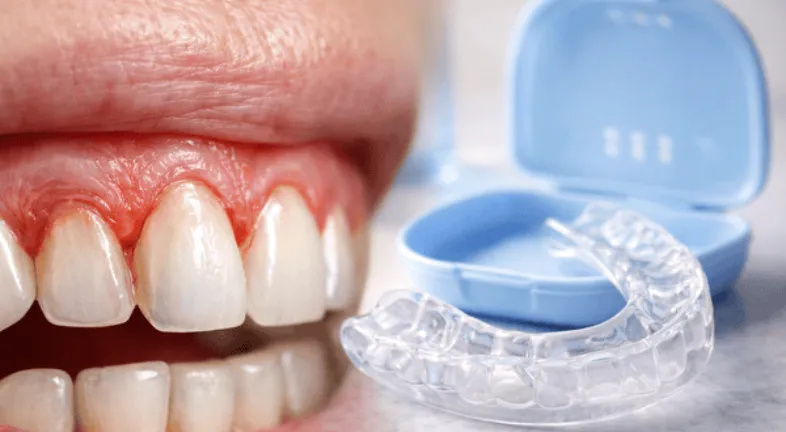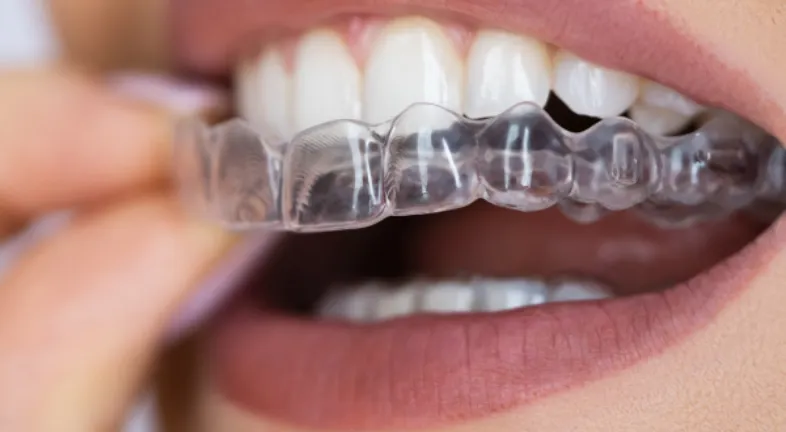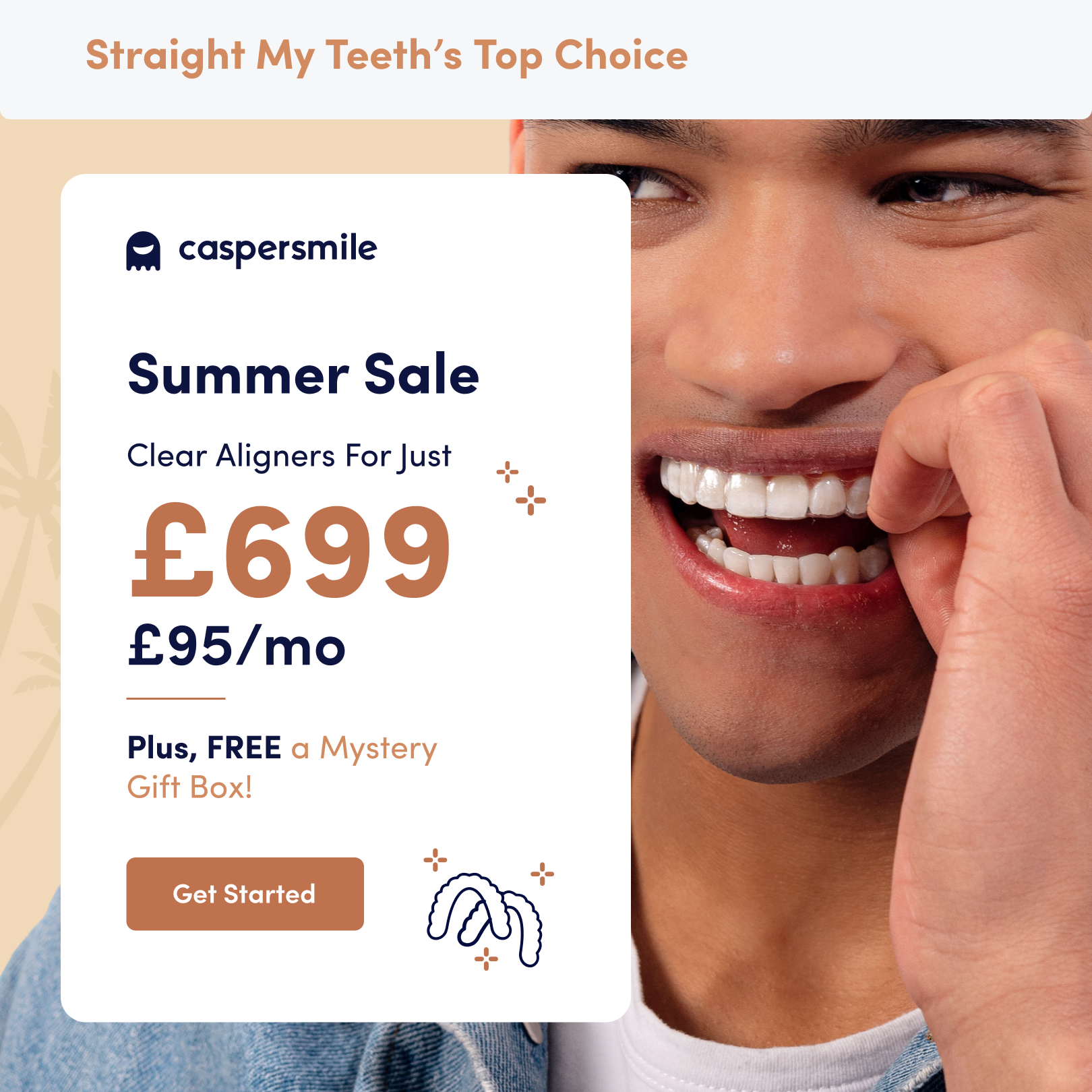
Table of contents
Most of us understand that we need to take care of our teeth with a good oral health routine. But did you know that if we let it slide and gum disease develops, it can have an impact on our whole body? According to the Oral Health Foundation, (1) when problems develop in our mouth, they can become a trigger for a whole host of other serious health concerns. These include heart attacks and strokes, diabetes, dementia, and even some types of cancers. Gum disease can even cause one in four pregnant women to be at an increased risk of premature birth (2) or having an infant with low birth weight.
Genetics can make you more susceptible to developing gum disease, but it is usually caused by plaque. Plaque is a form of bacteria, (3) and over time, it can build up in those hard-to-reach places such as in between the teeth. For this reason, you must brush your teeth at least daily, floss more often than you admit to, and have regular dental check-ups that include scale and cleans. Mouthwash can also help prevent tooth decay but does not replace brushing or flossing. It's best not to use it straight after brushing, as it can rinse away the fluoride and other beneficial additives in your toothpaste. It can, however, be good to use throughout the day, such as after lunch when you may want to freshen your breath and rinse your mouth without the need for brushing or flossing your teeth. If you're not sure how to brush effectively, floss comfortably, or when to use mouthwash, have a chat with your dentist next time you're having a check-up. And if you don't remember the last time you visited the dentist, it's time for you to book your next appointment!
Wanting straighter teeth is often associated with aesthetics, but did you know that a straight smile can also help you maintain good oral health? When teeth aren't in perfect alignment, it is increasingly difficult to maintain good oral health care at home. It becomes a challenge to clean in between teeth or along the gums effectively. Understandably, many adults don't want to be seen sporting traditional braces. So discretion is one of the main reasons people opt for clear aligner style teeth straightening over metal 'bracket and wire' style braces.
If your teeth are making it hard for you to feel good about yourself, it may have a more significant impact on your health than just a higher risk of gum disease. The link between mental health and physical health (4) can't be ignored either. It's thought that people suffering from poor physical health will often also have a mental health condition like anxiety or depression, and vice versa. That isn't something to smile about. Advancements in dental treatments like clear aligners mean that teeth straightening - which boosts oral health and self-confidence - is now more accessible and popular than ever before.
Wearing traditional braces involves attaching metal or tooth-coloured ceramic brackets to the tooth's surface, which remain permanently fixed for the duration of your treatment. Typically, treatment takes 18 months-2 years, and during that time, braces become part of your mouth. So you will need to get used to wearing them. While the long-term goal of having straight teeth for improved oral health outweighs many of the short-term negatives, traditional braces can be restrictive.
Clear aligners, on the other hand, are made from state-of-the-art, medical-grade plastic that is custom-designed to fit over your teeth. The main difference is that, unlike metal braces, the individual can remove their aligners for eating and brushing their teeth. Not only does this mean there are no food restrictions but it's also easier to maintain good oral health with effective brushing and flossing.
Even though the benefits speak for themselves, the cost can become a factor in discreet orthodontic solutions. Now that direct-to-consumer clear aligners are available in the UK, teeth straightening at home using clear aligners is more affordable than ever. The main advantages include the fact that there are no ongoing dental visits. The overall cost of having clear aligners is roughly one-quarter of what braces or clear aligners would cost from an orthodontist. Moreover, there are payment plans available.
Yes! While it is recommended you continue to see your dentist for check-ups regularly, it is possible to get the smile you want and straighter healthy teeth without ever leaving your home. While you'll often visit your orthodontist every 4-6 weeks with traditional braces or an in-practice clear aligner option, your entire can be carried out remotely if you decide to take this option.
You can choose from an extensive line of at-home clear aligner brands. Try out Caspersmile’s All Day and Nightlong clear aligners. They provide budget-friendly and effective treatment for mild to moderate cases of misalignment.
Hurry over to Caspersmile’s website and take their free assessment to determine your candidacy for the clear aligner treatment.
Curated the best for your knowledge
.webp) Cavities: Why Cleaning Your Essix Retainer Is Important
Cavities: Why Cleaning Your Essix Retainer Is ImportantCavities do not usually start with pain; they begin quietly. A thin film of plaque forms, bacteria settle in, and before you realize it, enamel has started to weaken. The risk of cavities often increases when you wear oral appliances like Essix retainers. However, the retainer itself is not the issue; improper maintenance and neglecting cleaning are the main culprits. If you have invested in orthodontic treatment, whether traditional braces or clear aligners, your retainer is what protects that investment. But an unclean one just makes matters worse. So, let’s walk through this guide to understand why cleaning your Essix retainer is important.
Read More Can Mouthguards Cause Gum Recession
Can Mouthguards Cause Gum RecessionMouthguards are usually seen as the “good guys” of dental care. They protect teeth from grinding, cushion heavy bites, and help prevent long-term damage. So when someone notices sore or receding gums while wearing one, confusion sets in fast. Can mouthguards cause gum recession, or is something else going on? The honest answer isn’t a simple yes or no. Gum recession almost never has one single cause. It’s usually the result of pressure, inflammation, habits, and time all working together. Mouthguards can sometimes contribute to irritation, but in many cases, they’re actually helping prevent worse damage. Understanding the difference matters more than blaming the device.
Read More How to Clean Essix Retainers
How to Clean Essix RetainersIf you wear Essix retainers, commonly known as clear retainers, you already know they are both amazing and annoying. Essix retainers are nearly invisible, lightweight, and comfortable. At the same time, they stain easily, hold onto odors, and can appear questionable if not properly cared for. Cleaning Essix retainers sounds simple. Rinse, brush, done. But if you’ve ever pulled yours out of its case and wondered why it smells off or looks slightly yellow, you already know there’s more to it. In this blog, we will guide you through how to clean Essix retainers properly, what to avoid, how often to clean them, and why they change color over time.
Read MoreQuick Links

Heading